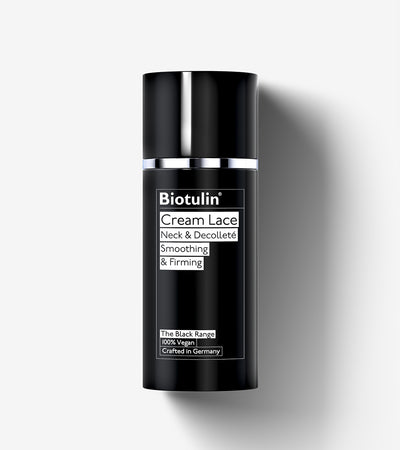Overview/Definition
Levulinic acid is a naturally occurring organic compound that has garnered significant attention in the skincare industry due to its multifaceted benefits. Derived from various plant sources such as sugarcane, corn, and rhubarb, levulinic acid has been utilized for centuries in traditional medicine for its therapeutic properties. This versatile ingredient is celebrated for its ability to gently exfoliate the skin, enhance moisture retention, and provide anti-inflammatory and antimicrobial benefits.
Chemically, levulinic acid is classified as a keto acid, which means it contains both a ketone and a carboxyl group. This unique structure allows it to act as a potent skin-conditioning agent. It is often used in skincare formulations to improve skin texture, reduce the appearance of fine lines and wrinkles, and promote a more even skin tone. Additionally, levulinic acid is known for its ability to enhance the penetration of other active ingredients, making it a valuable addition to various skincare products.
Levulinic acid is also recognized for its preservative properties. It helps to inhibit the growth of microorganisms, thereby extending the shelf life of skincare products. This makes it a popular choice among cosmetic manufacturers who seek natural and effective preservatives. Furthermore, levulinic acid is considered a low-hazard ingredient, as it is non-carcinogenic and generally well-tolerated by most skin types.
Function in Skincare
Levulinic acid serves multiple functions in skincare, making it a versatile ingredient in various formulations. Its primary roles include:
- Exfoliation: Levulinic acid acts as a gentle exfoliant, helping to remove dead skin cells and promote cell turnover. This results in smoother, brighter, and more youthful-looking skin.
- Humectant: It helps the skin retain moisture, keeping it hydrated and plump. This is particularly beneficial for individuals with dry or dehydrated skin.
- Anti-inflammatory: Levulinic acid has anti-inflammatory properties that can help calm and soothe irritated skin. This makes it suitable for sensitive skin types and conditions such as rosacea and eczema.
- Antimicrobial: It possesses antimicrobial and antifungal properties, making it effective against acne-causing bacteria. This helps to reduce breakouts and promote clearer skin.
- Antioxidant: Levulinic acid has significant antioxidant activity, which helps protect the skin from environmental damage caused by UV radiation and pollution.
Skin Type Suitability
Levulinic acid is suitable for a wide range of skin types, including:
- Dry Skin: Its humectant properties help to hydrate and moisturize dry skin, improving its texture and appearance.
- Oily Skin: Its exfoliating and antimicrobial properties make it beneficial for oily and acne-prone skin, helping to reduce excess oil and prevent breakouts.
- Sensitive Skin: Its anti-inflammatory properties can help soothe and calm sensitive skin, reducing redness and irritation.
- Aging Skin: Its antioxidant properties and ability to promote cell turnover make it effective in reducing the appearance of fine lines and wrinkles, improving skin elasticity, and promoting a more youthful complexion.
Benefits
Levulinic acid offers numerous benefits for the skin, including:
- Gentle exfoliation, resulting in smoother and brighter skin.
- Enhanced moisture retention, keeping the skin hydrated and plump.
- Reduction in the appearance of fine lines and wrinkles.
- Improved skin texture and tone.
- Calming and soothing effects on irritated skin.
- Antimicrobial properties that help reduce acne and breakouts.
- Antioxidant protection against environmental damage.
Potential Side Effects or Risks
While levulinic acid is generally well-tolerated, some individuals may experience mild side effects, particularly if they have very sensitive skin. Potential side effects include:
- Skin irritation, such as redness, itching, or a burning sensation.
- Dryness or flakiness, especially if used in high concentrations.
- Allergic reactions, although rare, can occur in some individuals.
It is always recommended to perform a patch test before incorporating any new skincare product containing levulinic acid into your routine. If irritation occurs, discontinue use and consult a healthcare professional.
Usage in Skincare Products
Levulinic acid can be found in a variety of skincare products, including:
- Cleansers
- Toners
- Serums
- Moisturizers
- Masks
- Exfoliating treatments
It is typically used at concentrations ranging from 2% to 5%, depending on the product and its intended use.
How it’s used
To incorporate levulinic acid into your skincare routine, follow these best practices:
- Start with a lower concentration to allow your skin to acclimate to the ingredient.
- Use products containing levulinic acid in the evening, as it can increase skin sensitivity to sunlight.
- Always follow up with a broad-spectrum sunscreen during the day to protect your skin from UV damage.
- Combine levulinic acid with other complementary ingredients, such as hyaluronic acid for hydration or niacinamide for brightening, to enhance its benefits.
Scientific Studies/Research
Several scientific studies have highlighted the efficacy of levulinic acid in skincare. For example, a study published in the International Journal of Molecular Sciences found that levulinic acid exhibits significant antioxidant activity, which can help protect the skin from environmental damage caused by UV radiation and pollution. Additionally, research has shown that levulinic acid can improve skin texture, reduce the appearance of fine lines and wrinkles, and enhance skin hydration.
- Levulinic acid for skin is a powerful natural compound
- What Is Levulinic Acid In Skin Care? The Next Big Thing In Skincare
Other Names/Synonyms
Levulinic acid may also be referred to by the following names:
- 4-Oxopentanoic acid
- γ-Ketovaleric acid
- 1-Acetopropyl acid
- Levulinate
Sustainability/Environmental Impact
Levulinic acid is considered a sustainable and eco-friendly ingredient. It is derived from renewable plant sources, such as sugarcane and corn, making it a biodegradable and environmentally friendly choice. Additionally, levulinic acid is not suspected to be an environmental toxin, and it does not accumulate in harmful levels in the environment.
Fun Facts
- Levulinic acid is a naturally occurring compound found in various plants and fruits.
- It has been used in traditional medicine for centuries to treat various skin conditions.
- Levulinic acid is also used in the production of biodegradable herbicides and as a precursor for various pharmaceuticals and plasticizers.


